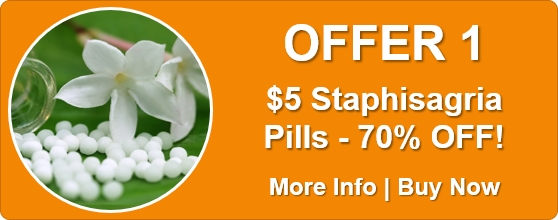Help! I Have PMS!

Do you experience mood swings, or crave chocolate, carbohydrates and salt, or bloat with fluid before your periods each month? Or perhaps you shriek at those around you, can’t leave the house for anxiety, or burst into tears at the drop of a hat?
If you are female and struggle once a month with these symptoms, you probably have premenstrual tension, better known as premenstrual syndrome (PMS). The good news is that something can be done about it. In this article, we show you:
- How a few simple self-help strategies reduce the impact of PMS on your life, and
- Which homeopathic remedies help return you to a healthy balance
What is PMS?
PMS affects women of any age, but usually starts during the late 20s and worsens year-by-year until menopause. Up to 80% of menstruating women experience one or more PMS symptoms each month.
PMS Symptoms – What are They?
- Mood swings
- Irritability
- Anxiety
- Fatigue
- Bloating
- Cramping
- Breast tenderness or swelling
- Headaches
- Menstrual discomfort
- Weight gain.
- Depression
- Poor concentration
- Clumsiness
- Weepiness
- Insomnia
- Aggression
- Fluid retention
- Swollen ankles
- Tiredness
- Weakness
- Joint and muscle pain
- Cravings for food and alcohol
- Skin deterioration
- Lowered immunity and skin infections
Taming PMS: Simple Steps to Take
1. Avoid these Foods and Drinks
Caffeine and alcohol: Drinks containing caffeine or alcohol can trigger or worsen the symptoms of PMS. Avoid manufactured ‘energy’ drinks, coffee, tea, chocolate and alcohol, especially in the fortnight before your period. If looking to drink something with a little flavour, try a squeeze of lemon juice in water, or a herbal tea instead.
Saturated and Trans-Fats: Diets high in saturated fats from animal products exacerbate PMS symptoms. Avoid greasy takeaway foods, animal fats, and processed meats such as sausages, ham, and salami. Also, trans-fats (manufactured fats, used in some margarines, commercial biscuits, and many processed foods) worsen symptoms, are harmful for health and should be avoided.
Refined Sugar: Eating sugary food may give a rush of energy but the rapid drop in blood sugar that follows worsens PMS symptoms and creates fatigue. Sugar in your diet depletes Vitamin B6, one of the vitamins that stablilises blood-sugar levels and mood swings, in your body. If you must have a sweet hit, use a natural sweetener such as fruit, stevia, or honey and avoid artificial sweeteners that only contribute to further health problems.
Salt: Too much salt has to be balanced with water in the body, worsening the bloating and fluid retention that occurs with PMS. Avoid foods high in salt to minimise this retention, especially in the fortnight before your periods.
2. Eat Well to Cope Well
If you are short on vitamins B6 and E, as well as potassium, magnesium, and calcium, your PMS symptoms will be much worse, but supplements may not be the way to go. For best results, obtain these vitamins and minerals from whole, fresh, organic foods; the benefits of other compounds and cofactors within the foods are not lost and they support the action of these vitamins and minerals in your body. Foods that improve are necessary for good health and which reduce PMS symptoms are:
- Fresh vegetables and fruit – at least seven serves every day.
- Whole foods such as wholemeal bread, whole grains, brown rice, nuts, and seeds. Avoid refined or processed grains.
- Lean to moderate fat meat, fish, chicken.
- A mix of mono and unsaturated fats from cold-pressed unhydrogenated vegetable oils such as olive and coconut oil (remember, a healthy diet IS NOT a low-fat diet).
- Dairy products in moderation: milk, cheese, and yoghurt
3. Don’t Skip Meals
Graze your way through the day. Five to six small, healthy meals are more effective at preventing sudden blood sugar drops than two or three large meals. Low blood sugar worsens pre-menstrual symptoms and cause hard-to-control food cravings and mood swings.
4. Drink Plenty of Water
Treat your body to 1.5 –2 litres of water a day. Rather than leading to fluid retention, additional water stimulates your body to flush away toxins, removing extra fluid in the process.
5. Break that Habit
Tobacco use depletes the body of vital nutrients and so worsens the symptoms of PMS. Decide to kick the habit once and for all. Not only will your health and mood improve but the money you save could be spent on a special treat to reward yourself.
6. Reduce the Stress
Stress contributes significantly to the symptoms of PMS, and in turn, PMS makes it harder to cope with stress. To short-circuit this loop, look for ways to reduce the strain in your life. Known stress-busters include:
- Daily exercise such as a workout at the gym or a brisk walk
- Yoga – by yourself or with some friends
- Meditation in the quiet of your home
- Calming herbal teas such as Juniper, Dandelion or Chamomile
- Warm relaxing baths – add a few drops of lavendar to the water for its calming effect
- Plenty of good quality sleep – this is not the time to burn the candle at both ends
- Escaping into a good book, hobby, or craft to forget about the days irritations
- Building and maintaining a routine so that things do not overwhelm you. Planning ahead prevents frazzled nerves and temper
- Scheduling important events and activities for times when you will be at your best and not when you are ‘premenstrual’
Rebalance with Homeopathy
Homeopathic remedies are fantastic at correcting underlying imbalances that lead to PMS symptoms. In two studies conducted by Hadassah Hospital (Jerusalem, Israel) in the 1990’s, 90% of women treated with homeopathy over a 3 month period experienced improvement in their PMS symptoms. The main remedies – there are others – for the treatment of premenstrual symptoms are listed below. Most should be found in home-use kits.
Bryonia alba (Bry)
Key Symptoms: Irritable and easily angered. Prefers to be alone and dislikes being disturbed. Painful, swollen breasts that hurt with movement. Breasts must be supported during movement. Stitching, shooting pains in the breasts. Thirsty for large drinks.
Supporting Symptoms: Much better for being quiet. Anxiety about business affairs or finances. Dryness of mouth. Hard constipation. Headaches before the periods, often in the forehead and back of the head, worse for movement. Feels worse during the heat.
Chamomilla (Cham)
Key Symptoms: Extremely irritable and angry. Rude and short-tempered. Dissatisfied – cannot be pleased no matter what is done. Oversensitive to pain or environmental stimuli such as noise, odours, and touch.
Supporting Symptoms: Does not want to be spoken to or touched. Symptoms worsened by coffee. Physical symptoms caused by anger. Pains in the uterus from anger. Painful cramps before the periods. Feels worse once periods start.
Lachesis muta (Lach)
Key Symptoms: Irritable, sharp-tongued, vindictive, jealous, or suspicious. Witty, sometimes with meanness. Passionate and talkative – may hardly pause for breath. Premenstrual symptoms or cramps settle as soon as the period begins.
Supporting Symptoms: Overactive mind, especially in the evening and before midnight. Tight clothing is unbearable, especially around the neck. Headache before the periods, pulsating in temples.Left-sided symptoms or complaints. Feels the heat. Feels worse after waking from a sleep.
Lycopodium clavatum (Lyc)
Key Symptoms: Weeping before the periods. Lack of confidence. Anxiety about new things. Feelings of helplessness. Avoids responsibilities. Digestive disturbances – bloating and flatulence. Craving for sweets.
Supporting Symptoms: Bossy or rude with family members or subordinates. Headaches from overheating. Dry blockage of nose at night. Worse between 4 – 8pm. Symptoms worse on the right side, or starting on the right and moving to the left.
Nux vomica (Nux-v)
Key Symptoms: Driven. Fussy and fault-finding. Extreme behaviour. Irritable or angry if hindered, to the point of rage. Desire for stimulants (eg, coffee) or relaxants (eg, alcohol).
Supporting Symptoms: Competitive and ambitious. Quarrelsome, even to violence. Jealous. Feels the cold. Symptoms from becoming cold. Cramps. Worse in the morning. Desires fatty food.
Pulsatilla Pratensis (Puls)
Key Symptoms: Weepy and moody. Feeling alone, unloved, and as if nobody cares. Wanting sympathy, affection, or to held and cuddled. Tears and irritability if ignored.
Supporting Symptoms: Mild and yielding. Symptoms worse at times of hormonal change (puberty, periods, pregnancy, menopause). Changeable symptoms – no two menstrual cycles or periods are alike. Sensitive to heat. Everything feels worse in a stuffy room and better for fresh air. Little or no thirst. Symptoms from rich or fatty food. Headaches before the periods.
Sepia (Sep)
Key Symptoms: Irritability and anger. Sarcastic. Desire to be alone. Not wanting to talk. Better for work, keeping busy, or strenuous exercise.
Supporting Symptoms: Dislikes being touched or shown affection. Weeping before the periods. Craves sour things or chocolate. Dragging pain during periods. As if everything was going to ‘fall out’ during periods. Chilly. Exhausted.
Keep in mind
Immediate symptoms are easily treated by yourself in the home situation but PMS is a chronic complaint which may need a series of remedies for complete improvement. If in doubt about which remedies best suit you, please see a fully qualified homeopath and wave goodbye, once and for all, to PMS.
References
Yakir M, Kreitler S, Brzezinski A, Vithoulkas G, Oberbaum M, Bentwich Z (2001). Effects of homeopathic treatment in women with premenstrual syndrome: a pilot study. British Homeopathic Journal; 90:148–153.
Boericke, William; Boericke, Oscar E. (1927). Homeopathic Materia Medica. ISBN 0766183882.






